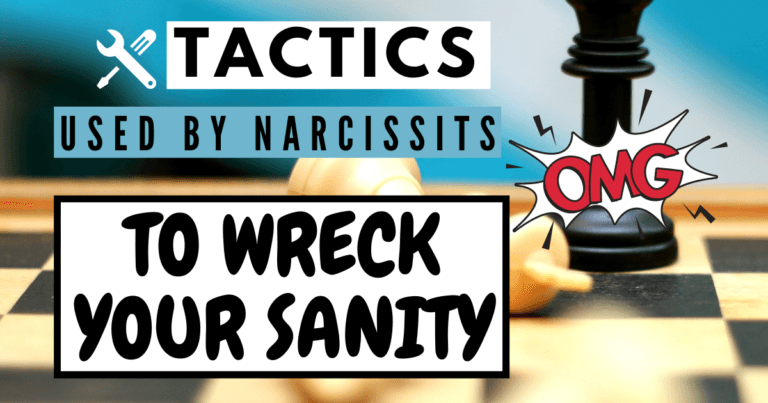7 Effective Ways to Protect Yourself from the Emotional Manipulation of Narcissism in Romantic Relationships
Is there Someone Who Is Emotionally Manipulating You?
Narcissism in romantic relationships can be incredibly damaging, leading to emotional manipulation, loss of self-esteem, and long-term psychological trauma. When involved with a narcissist, the relationship often starts with intense passion and charm but gradually devolves into a cycle of control, manipulation, and abuse. Recognizing the signs and protecting yourself is crucial for your mental and emotional well-being. Here, we’ll explore seven effective ways to safeguard yourself against the emotional manipulation commonly experienced in relationships with narcissists.
1. Recognize the Red Flags Early On
The first step in protecting yourself is to recognize the red flags of narcissism early in the relationship. Narcissists often begin relationships with an idealization phase, showering their partners with excessive attention, compliments, and promises. While this might feel flattering, it’s important to remain cautious. Signs such as a lack of empathy, an excessive need for admiration, or a sense of entitlement should raise concerns. If you notice these traits, it’s crucial to take a step back and evaluate whether this relationship is healthy.
2. Understand the Tactics of Emotional Manipulation
Narcissists are skilled at emotional manipulation, using tactics like gaslighting, guilt-tripping, and playing the victim to maintain control over their partners. Gaslighting, in particular, is a common tool where the narcissist distorts reality to make you doubt your own perceptions and sanity. Understanding these tactics is essential for protecting yourself. Once you recognize these behaviors, you can begin to resist their influence and maintain a clearer perspective on the situation.
3. Establish and Maintain Firm Boundaries
Setting firm boundaries is one of the most effective ways to protect yourself from a narcissist’s manipulation. Narcissists often push boundaries, testing how far they can go in controlling and exploiting their partners. By clearly defining what is and isn’t acceptable behavior, you can limit their ability to manipulate you. Be prepared for pushback, as narcissists typically don’t respect boundaries, but standing firm is crucial for your well-being.
4. Seek External Support
Isolation is a common tactic used by narcissists to control their partners. They may discourage you from maintaining relationships with friends and family or criticize those close to you. It’s vital to resist this isolation and seek external support from trusted friends, family members, or a therapist. These external perspectives can help you see the relationship more clearly and provide the emotional support needed to break free from manipulation.
5. Focus on Self-Care and Personal Growth
Being in a relationship with a narcissist can erode your self-esteem and sense of self-worth. To combat this, prioritize self-care and personal growth. Engage in activities that build your confidence, such as pursuing hobbies, exercising, or practicing mindfulness. Strengthening your sense of self will make it harder for the narcissist to manipulate you and can provide the clarity needed to make difficult decisions about the relationship.
6. Don't Engage in Power Struggles
Narcissists thrive on power struggles, often using them to reinforce their sense of superiority and control. Engaging in these conflicts can be exhausting and emotionally draining. Instead, avoid getting drawn into their games. Focus on maintaining your boundaries and staying calm in the face of provocation. By refusing to engage in power struggles, you can reduce the narcissist’s ability to manipulate your emotions and maintain control.
Top Red Flags of Narcissism and How to Counter Them
1. Excessive Need for Admiration
Narcissists constantly seek attention and praise, often making everything about themselves.
Counter Tip: Set boundaries around how much attention you give, and don’t feel obligated to feed their ego.
2. Lack of Empathy
Narcissists are often unable to understand or care about others' feelings.
Counter Tip: Protect your own emotional well-being by distancing yourself emotionally and seeking support from empathetic people.
3. Manipulative Behavior
They often use manipulation tactics to control others, including gaslighting and guilt-tripping.
Counter Tip: Recognize the manipulation and calmly call it out. Don’t let them twist your reality.
4. Grandiose Sense of Self-Importance
Narcissists often believe they are superior to others and expect special treatment.
Counter Tip: Remain grounded and remind yourself of your own worth. Don’t buy into their inflated self-image.
5. Constantly Plays the Victim
Narcissists will often portray themselves as victims to gain sympathy and avoid responsibility.
Counter Tip: Hold them accountable for their actions and refuse to engage in their victim narrative.
6. Intense Fear of Abandonment
They may cling to relationships out of fear of being alone, sometimes resorting to extreme behaviors.
Counter Tip: Maintain your independence and don’t let them use fear of abandonment to control you.
Related: Is Social Media Fueling Narcissism?
7. Know When to Walk Away
Sometimes, the only way to protect yourself from a narcissist is to walk away from the relationship entirely. This can be incredibly difficult, especially if the narcissist has manipulated you into feeling dependent on them. However, recognizing when a relationship is beyond repair is crucial for your mental and emotional health. Leaving a narcissist often leads to a period of intense emotional turmoil, but it’s also the first step toward healing and reclaiming your life.
Empowering Yourself Against Narcissistic Manipulation
Narcissism in romantic relationships can be devastating, but by understanding the signs and strategies of emotional manipulation, you can protect yourself and maintain your well-being. It’s essential to recognize that you deserve a relationship built on mutual respect, trust, and genuine love—not manipulation and control. By setting firm boundaries, seeking external support, and prioritizing self-care, you can navigate these challenging relationships and, if necessary, find the strength to walk away.
emotional manipulation emotional manipulation emotional manipulation emotional manipulation emotional manipulation emotional manipulation emotional manipulation emotional manipulation emotional manipulation








